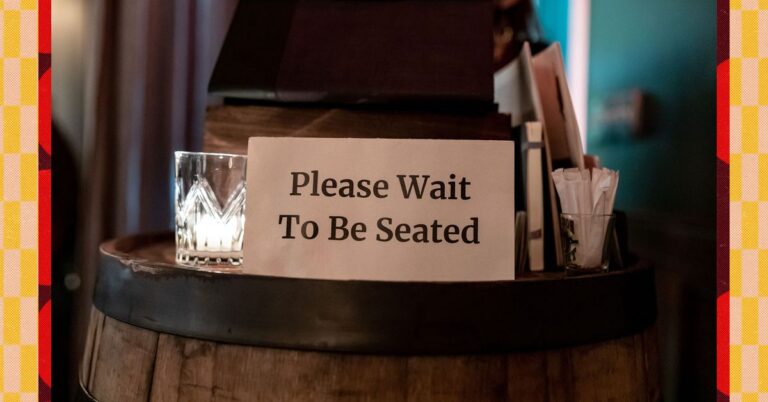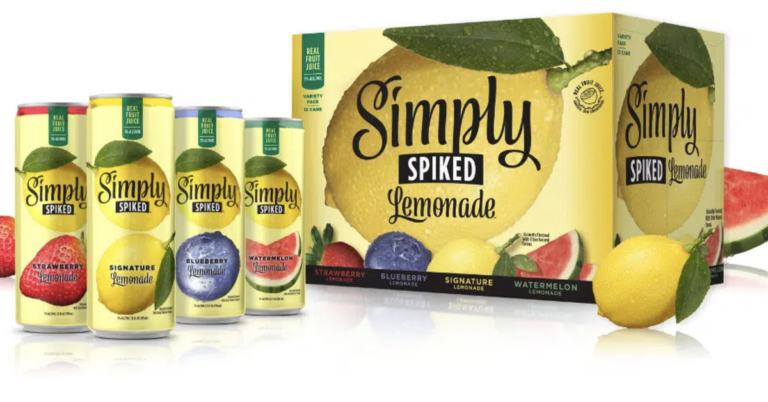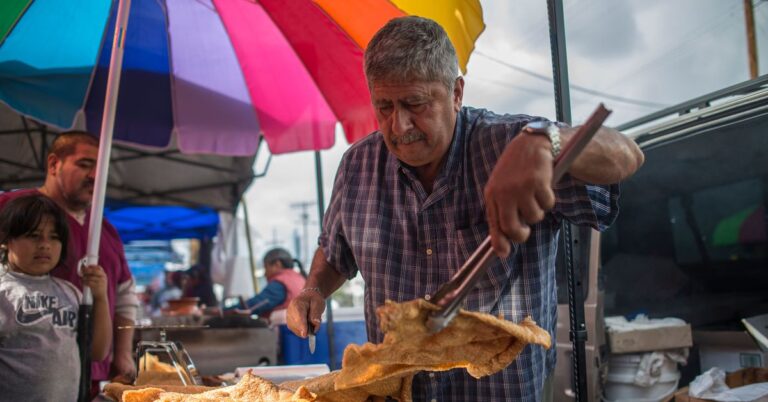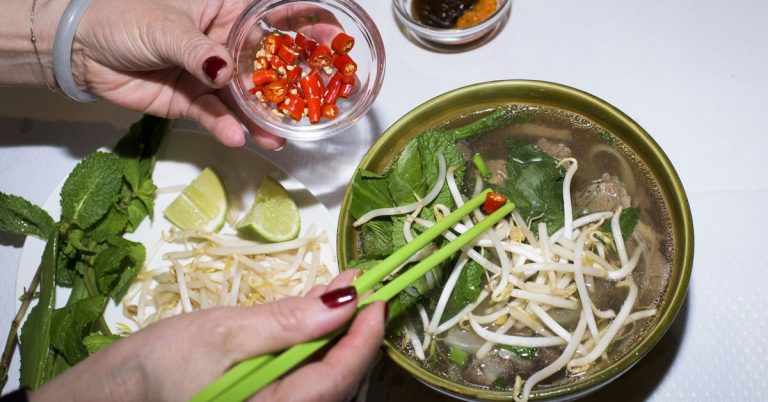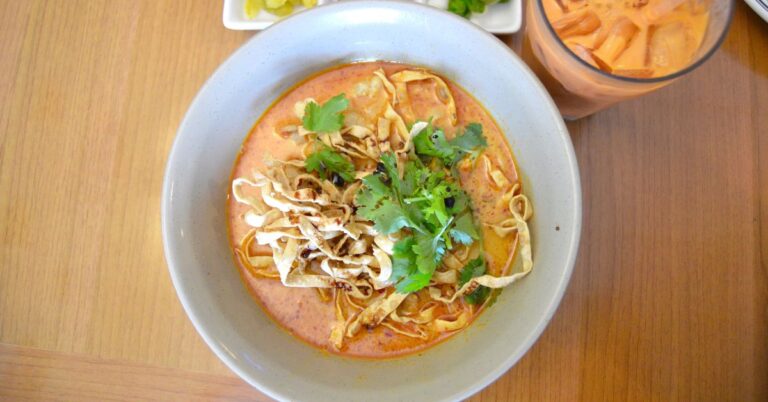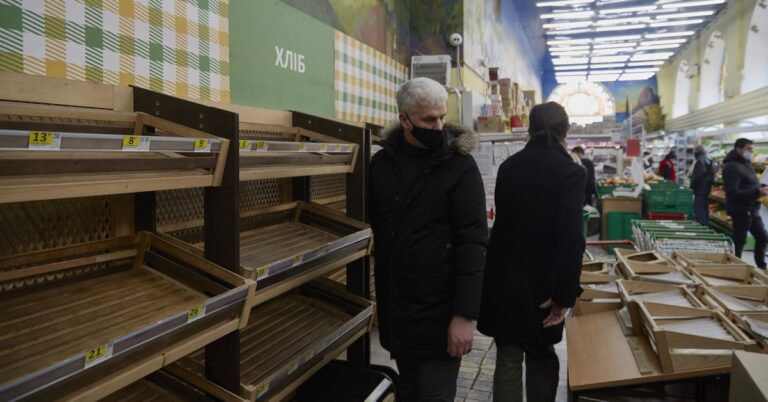Wahpepah’s Kitchen Brings an Indigenous Menu Rooted in Personal History to the Bay Area
News broke last week that Reem’s Arab bakery has departed its original location near Fruitvale, handing over the keys to an Indigenous chef known for catering events in the East Bay and across the country. Crystal Wahpepah — who starred as the first Indigenous chef on the Food Network’s show Chopped — is moving into the space and transitioning from catering to opening her first restaurant called Wahpepah’s Kitchen. Wahpepah plans to open by the end of October, filling the space with warm earth tones, stacking the pantry with squashes and wild rice, and introducing a menu featuring bison chili and blue corn waffles.
The only other Indigenous restaurant in the area is Cafe Ohlone, which plans to reopen this fall, despite the vast multi-tribal community in the San Francisco Bay Area, which is not only the unceded ancestral homeland of the Ohlone tribe, but also home today to hundreds of other relocated tribes moved from reservations. The Wahpepah’s Kitchen opening will represent a broader range of native ingredients and culinary traditions, and is a cause for celebration for the inter-tribal community in Oakland and the entire Bay Area.
:no_upscale()/cdn.vox-cdn.com/uploads/chorus_asset/file/22882704/image_72192707_4.JPG)
Adam Singswiththetimber
Wahpepah tells Eater she is a lifetime resident of East Oakland and a displaced member of the Kickapoo tribe of Oklahoma. She went through the La Cocina incubator program about a decade ago in order to launch her catering business, sharing Indigenous ingredients and dishes through events. But now, she’s excited to open her first full-service restaurant. “This has been a long, long time coming,” Wahpepah says. “For me, growing up in Oakland, there were so many different restaurants and foods and cultures, but there was something always missing here. And that was native cuisine.”
Wahpepah’s Kitchen will be open all day, starting with a breakfast menu featuring blue corn waffles and rolling into a lunch and dinner menu filled with hearty stews and grain salads. Wahpepah says her menu is not strictly or traditionally Kickapoo, or limited to Northern California either, but more personal, pulling Indigenous ingredients from across the country: “I pay tribute to my grandmother, my tribe, and the land that I’m on,” she says. Her chili is rich with bison or venison, chiles and tomatoes, and thickened with hominy. She showcases different types of squashes, from Hubbard to Lakota to Hopi, simmered in soups with toasted sage. And she takes wild rice, quinoa, amaranth, and other grains, tossing them into salads topped with bison meatballs or smoked salmon. She also loves berries, folding in elderberries, blackberries, chokeberries, and more into savory and sweet dishes.
:no_upscale()/cdn.vox-cdn.com/uploads/chorus_asset/file/22882701/20A390D1_EC8C_4929_8AA5_31C0F16F0859_1_201_a.jpeg)
Wahpepah’s Kitchen
The layout of the former bakery will stay the same, but they are currently repainting the space in vibrant colors, from butternut orange to jade green. Artist Tony Abeyta, member of the Navajo tribe, is currently installing a mural. Stephen Cheney of High Rez Wood, from the Lakota tribe, is building salvaged wood tables. Wahpepah is particularly proud of her ingredient sourcing and plans to put “my Indigenous pantry” on full display, with a wall filled with dried corn, beans, and squashes, all from her personal collection. “I want you to come in and know you’re home,” she says. In addition to indoor seating, there will be tables outdoors on the Fruitvale plaza, and grab-and-go options for Bart commuters.
“We’re excited for her opening this restaurant,” says Vincent Medina of Cafe Ohlone. “It’s meaningful because there are so many relocated native people in the Bay Area.” He explains how throughout North America, there are hundreds of native cuisines, varying by place and region, and in California alone, the Ohlone tribe had 54 different nations and many languages. “There’s wonderful abundance,” he says of native food traditions. “There’s so much richness.” Cafe Ohlone specifically focuses on the ingredients of Northern California, particularly acorns cooked in baskets, native potatoes enriched with ash from fires, and wild deer. In contrast, Wahpepah’s Kitchen pulls in Great Plains bison, squash, corn, wild rice, and more.
“It reflects another nation that’s here living in the Bay Area today, and it goes a long way in helping people from the inter-tribal community get larger visibility,” Medina says. “We would like to see a whole array of Indigenous restaurants that are respecting people’s homelands, place-based and also relocated as well. Because no matter where we come from, these Indigenous foods are delicious.”
In the end, Wahpepah says she’s grateful it took a decade to open her first restaurant, which gave her space and time to travel the nation, visit her own homeland, learn about other native foods, and cultivate relationships with Indigenous farmers and ranchers. “Let me put it this way,” she says. “You have to swim in the shallow before you go deep.” Serving her auntie’s wild rice, her grandmother’s deer, or our local salmon, today she wants you to taste the rich differences in all of the native foods in the Bay Area. “This is a time for celebration, and this has been a long, long time waiting to come,” she says. “Especially here in Oakland. And what other better place, than to serve my community here in Oakland, where I was born and raised.”

